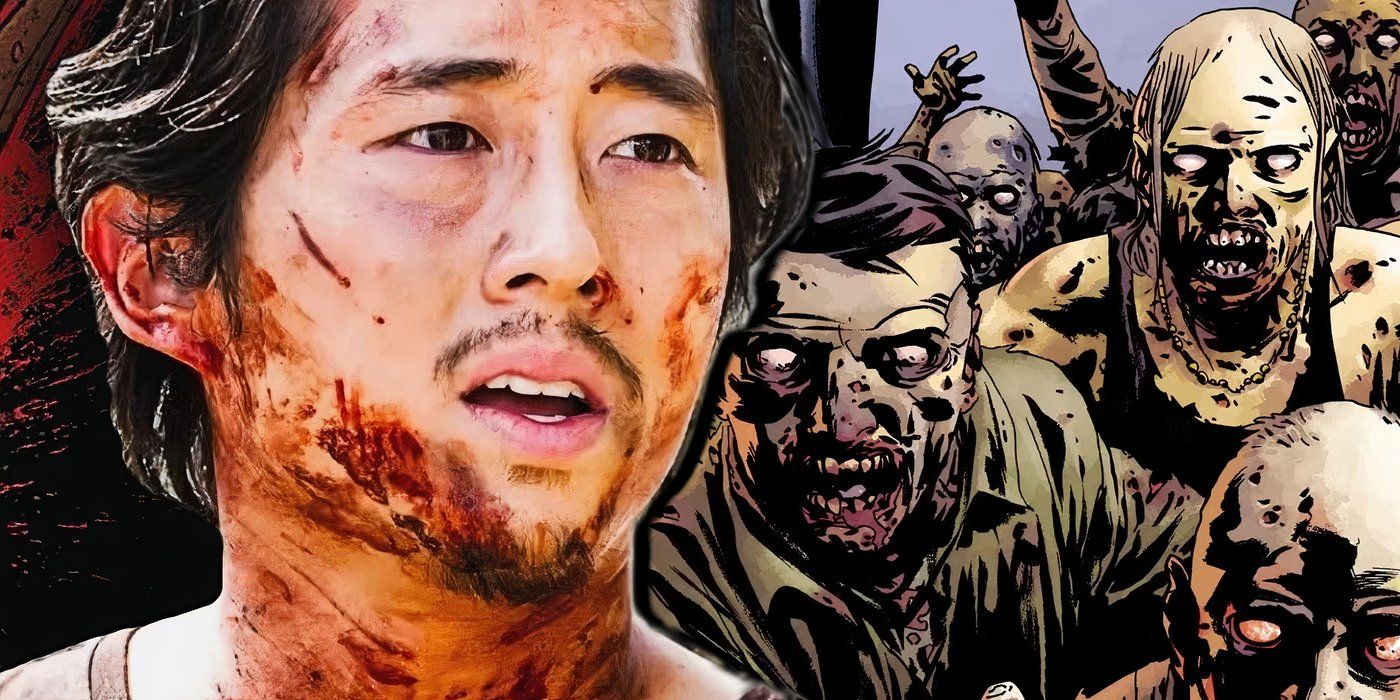The Walking Dead Deluxe #110, written by Robert Kirkman, with art by Charlie Adlard, contains the author’s retrospective notes on the events of the issue, including one moment Kirkman claims Erik Larsen would roll his eyes at.
“Larsen always criticizes my page turns,” Kirkman wrote, before offering an explanation of why he structures them the way he does, noting that he “like[s] a set-up and knock-down structure to my page turns,” even though one of his most influential fellow Image creators has his reservations about them.
Image Co-Founder Erik Larsen's "Criticism" Of The Walking Dead, Explained
Robert Kirkman On The Art Of "Page Turn Moments"
In The Walking Dead #110, which the Deluxe edition presents a full-color reprint of, there is a heated dialogue scene between the Hilltop residents Jesus and Kal, which ends with an example of Robert Kirkman's trademark "page-turner moment" style, which prompted him to recall his disagreement with Erik Larsen over its effectiveness. It comes at the end of a dialogue-heavy page, which Robert Kirkman finds an "out" for by having Kal's attention diverted by something off-panel, his eyes widening with horror at what he sees, a moment ahead of the reader.
Reflecting on his use of the technique here, Kirkman mused:
In other words, according to the Savage Dragon author, letting readers know a surprise is coming ahead of the turn of the page mitigates its effectiveness, while The Walking Dead creator disagrees, arguing that it creates a moment of anticipation that benefits the reading experience. Though Robert Kirkman playfully concedes to Larsen's expertise on the matter, the truth is, it is worth exploring both perspectives in more detail, to better understand how the styles affect readers differently.
Fans Of The Comic Know "Page-Turner Moments" Were An Essential Part Of Reading The Walking Dead
The Walking Dead Deluxe #110: Written By Robert Kirkman; Art By Charlie Adlard; Color By David McCaig; Lettering By Rus Wooten
This is evident in the structure and pacing of Kirkman’s storytelling as a whole, particularly throughout The Walking Dead, as well as to a certain extent in Invincible. His penchant for “page-turner moments” is simply one specific manifestation of this on the page, which can be dissected in more detail. The Walking Dead featured its share of memorable cliffhangers, especially at the ends of issues, and this is essentially a variation on that, which allowed the author to build mini-cliffhanger moments into the story at certain key points.
Savage Dragon Is Among Robert Kirkman's Biggest Influences; No Wonder Erik Larsen's Feedback Stuck With Him
A Generational Divide Between Image Comics Icons

In a way, this is a matter less of whether the “reveal” is telegraphed, and more about whether what comes once the page has been turned lives up to the anticipation Robert Kirkman has coded into the moment.
There is more to be said about Savage Dragon’s influence on Robert Kirkman, but a lot can be gained from a closer look at this seemingly simple divergence between The Walking Dead and its Image Comics predecessor. Notably, the example of Kirkman’s “page-turner” style in Walking Dead #110 perhaps lacks the full “oompf” Kirkman says he was seeking from such a moment, lending credence, at least in this instance, to Erik Larsen’s perspective. Yet there are many more examples from The Walking Dead’s run where this proves to be far more effective.
In a way, this is a matter less of whether the “reveal” is telegraphed, and more about whether what comes once the page has been turned lives up to the anticipation Robert Kirkman has coded into the moment. In The Walking Dead #110, the “surprise” is a trio of members of Negan’s Saviors unfamiliar to the reader, and so the shock of the moment signaled by Kal’s facial reaction to their arrival doesn’t necessarily carry over to the reader. Still, if nothing else, it does get the scene from point A to point B.
From Pulse-Pounding Action To "Page-Turner Moments"
An unexpected reveal can add a much-needed jolt to a comic book story, but there is more to keeping a reader hooked than that. Robert Kirkman’s “page-turner moments” are an acknowledgement of that; they are, in practice, a way of generating excitement for the next page, even if the content of the page itself hasn’t necessarily done so. Again, look to the example in The Walking Dead Deluxe #110; the dialogue between Jesus and Kal is important, but not exceptional, and Kal’s look of surprise in the final frame is the crescendo it builds to, while the subsequent page shifts the scene into an entirely different mode.
Erik Larsen’s differing take on this is not without merit, but it is fair to say that these “page-turner moments” were a part of The Walking Dead’s creative DNA, meaning they are part of what made it stand out as its own distinct creative work.
The Walking Dead Deluxe #110 is available now from Image Comics.


-1745465884-q80.webp)
